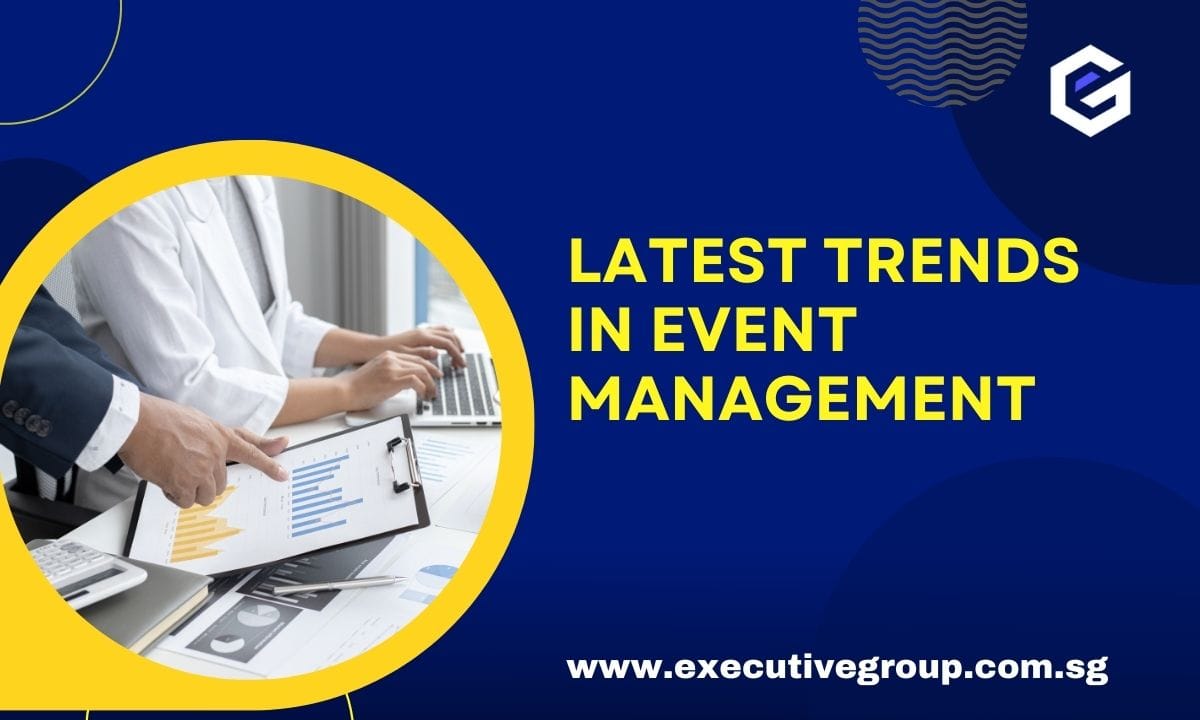
Exploring the Latest Trends in Event Management
In the dynamic world of event management, staying ahead of the curve is paramount. You have embarked on an exciting journey to uncover the latest trends that are reshaping the way events are planned, executed, and experienced. From cutting-edge technologies to evolving consumer expectations, join us as we explore the innovations and strategies defining the future of event management.
The Era of Immersive Experiences
1. Experiential Marketing Dominance:
In today’s hyperconnected world, events are no longer mere gatherings; they are immersive experiences. Event managers are increasingly adopting experiential marketing techniques, focusing on creating memorable moments that engage and captivate attendees. From interactive installations to sensory branding, experiential marketing is reshaping event design.
2. Virtual and Hybrid Events:
The rise of virtual and hybrid events has transformed the event landscape. These formats offer broader reach, reduced costs, and increased flexibility. Virtual elements like live streaming and online networking are now necessary for event managers. Event Venue also plays an important role in successful events.
Technology: Enabling Innovation
3. Augmented and Virtual Reality (AR/VR):
AR and VR technologies are becoming integral to event experiences. They enable attendees to immerse themselves in virtual environments, attend events remotely, and interact with 3D content. From virtual product demos to interactive VR tours, these technologies are redefining engagement.
4. Artificial Intelligence (AI):
AI-driven chatbots, personalized recommendations, and data analytics are streamlining event management processes. They enhance attendee experiences through tailored content, efficient registration, and real-time assistance.
Sustainability: A Growing Imperative
5. Sustainable Practices:
Sustainability is no longer a trend but a necessity. Event managers are adopting eco-friendly practices, from reducing single-use plastics to sourcing locally and minimizing waste. Sustainable events resonate with environmentally conscious attendees and align with corporate social responsibility goals.
6. Digital Invitations and Ticketing:
Reducing paper waste, digital invitations, and ticketing not only minimizes environmental impact but also offers convenience. They enable seamless check-in, real-time updates, and data collection for future marketing efforts.
Security and Safety Concerns
7. Enhanced Security Measures:
Security concerns have heightened in recent years. Event managers are investing in advanced security technologies, robust access control, and emergency response plans to ensure the safety of attendees.
8. Health and Hygiene Protocols:
The global pandemic accelerated the adoption of health and hygiene measures. Enhanced cleaning protocols, contactless check-in, and vaccination verification are now standard practices at events.
Pros and Cons of Embracing Event Management Trends
Pros:
- Enhanced Engagement: Trends like experiential marketing and AR/VR elevate attendee engagement.
- Efficiency: Technologies like AI streamline event management processes.
- Sustainability: Embracing sustainable practices aligns with social responsibility and attracts conscious attendees.
Cons:
- Cost: Implementing advanced technologies can be costly.
- Complexity: Embracing multiple trends simultaneously can be challenging to manage.
- Adaptation: Keeping up with rapid technological advancements and changing consumer expectations requires ongoing effort.
Tech Specs and Expert Recommendations
To harness the latest trends effectively, consider these tech specs and recommendations:
- Event Management Software: Invest in software that integrates AR/VR, AI, and virtual event capabilities.
- Sustainability Metrics: Use sustainability measurement tools to track and improve your eco-friendly practices.
- Cybersecurity Protocols: Ensure robust cybersecurity measures are in place for virtual and hybrid events.
Our Expert Recommendation: Stay agile and adapt to emerging trends that align with your event goals and audience preferences.
FAQs
Q1: How can I incorporate sustainability into my events?
A1: Start by reducing waste, sourcing locally, and using eco-friendly materials. Communicate your sustainability efforts to attendees to showcase your commitment.
Q2: Are virtual events here to stay?
A2: Yes, virtual and hybrid events are expected to remain a significant part of the event landscape, offering accessibility and flexibility.
Conclusion
As you embark on your journey in the event management sphere, remember that staying informed about the latest trends is critical to success. The event industry is evolving at a rapid pace, and embracing these innovations can set you apart in a competitive market.
The future of event management is dynamic, immersive, and sustainable. By incorporating the latest trends and technologies, you can create unforgettable experiences that leave a lasting impact on attendees and clients alike.

